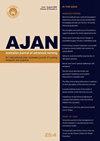Implications for bachelor of nursing programs when using student experience survey findings as an indicator of course quality
IF 1.3
4区 医学
Q3 NURSING
引用次数: 1
Abstract
Objective: To discuss the implications of using student experience surveys to improve the quality of teaching and learning within bachelor of nursing programs in Australia. Background: Australia’s recent independent review of nursing education suggests that not all graduates are sufficiently prepared for their registered nurse role, indicating problems with program quality. Student experience surveys are widely used in course development processes. Discussion: A reliance on student experience survey findings for course development may contribute to course changes based on student satisfaction that place overall graduate capability at risk. Because student experience surveys have design limitations, satisfaction only partially aligns with learning and learning outcomes, and students’ subjective beliefs about self, nursing and learning potentially influence their survey responses, the exclusive use of student experience surveys in course development and teacher evaluations is contested. Conclusion: Using student experience survey findings as an indicator of course quality has unacknowledged implications for bachelor of nursing programs. Findings from student experience surveys should be situated within a context of other elements or factors when making curriculum decisions. Teacher and course evaluations based primarily on student satisfaction can have unintended consequences for course content, course delivery, student learning and learning outcomes and ultimately impact on the reputation of the university.使用学生体验调查结果作为课程质量指标对护理学士课程的影响
目的:探讨利用学生体验调查提高澳大利亚护理学士课程教学质量的意义。背景:澳大利亚最近对护理教育的独立审查表明,并非所有毕业生都为注册护士的角色做好了充分的准备,这表明课程质量存在问题。学生体验调查在课程开发过程中被广泛使用。讨论:课程开发中对学生体验调查结果的依赖可能会导致基于学生满意度的课程变更,从而使毕业生的整体能力处于危险之中。由于学生体验调查具有设计局限性,满意度仅部分与学习和学习成果相一致,学生对自我、护理和学习的主观信念可能会影响他们的调查反应,因此在课程开发和教师评估中单独使用学生体验调查存在争议。结论:使用学生体验调查结果作为课程质量的指标,对护理学士课程有未被承认的影响。在制定课程决定时,应将学生体验调查的结果置于其他要素或因素的背景中。主要基于学生满意度的教师和课程评估可能会对课程内容、课程交付、学生学习和学习成果产生意想不到的后果,并最终影响到大学的声誉。
本文章由计算机程序翻译,如有差异,请以英文原文为准。
求助全文
约1分钟内获得全文
求助全文
来源期刊
CiteScore
2.30
自引率
7.10%
发文量
27
审稿时长
>12 weeks
期刊介绍:
The Australian Journal of Advanced Nursing publishes a wide variety of original research, review articles, practice guidelines, and commentary relevant to nursing and midwifery practice, health- maternity- and aged- care delivery, public health, healthcare policy and funding, nursing and midwifery education, regulation, management, economics, ethics, and research methodology. Further, the journal publishes personal narratives that convey the art and spirit of nursing and midwifery.
As the official peer-reviewed journal of the ANMF, AJAN is dedicated to publishing and showcasing scholarly material of principal relevance to national nursing and midwifery professional, clinical, research, education, management, and policy audiences. Beyond AJAN’s primarily national focus, manuscripts with regional and international scope are also welcome where their contribution to knowledge and debate on key issues for nursing, midwifery, and healthcare more broadly are significant.

 求助内容:
求助内容: 应助结果提醒方式:
应助结果提醒方式:


